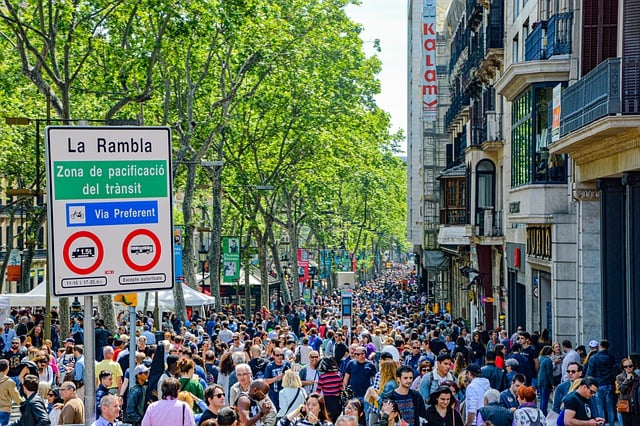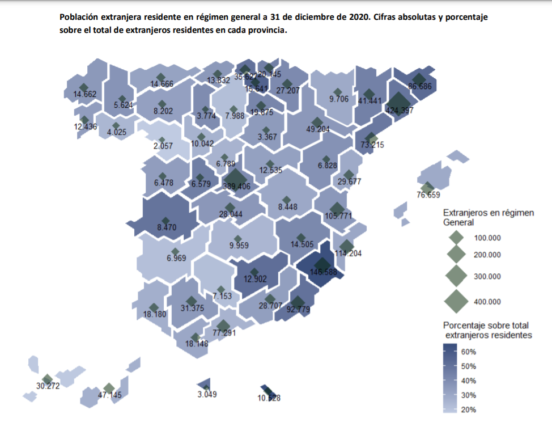A few weeks ago I wrote about tripping over on the pavement, and how even with bleeding knees I didn’t get help from anyone, in fact not even getting a single glance in my direction – which I felt people did on purpose.
Now it’s happened again, but to someone utterly undeserving of such treatment.
An older gentlemen on the train to Uppsala wanted to buy a ticket but didn’t have a credit card. He asked the other passengers if anyone could pay for him and said he’d give them the equivalent sum in cash instead.
Nobody helped him. Nobody even looked at him.
You know that feeling when people just keep on walking, pretending nothing has happened?
Or when people’s first reaction to someone asking for help is suspicion. And how we ourselves have stopped asking for help simply because that fear of suspicion holds us back.
Or when people only care about their own time and their own lives?
I ended up paying for the old man’s ticket. It turned out we were heading in the same direction and we chatted for a while.
He told me how people don’t see him as human. He got upset.
I told him I was about to give two lectures that day in two different cities to about 600 teenagers.
I promised to tell them to see their fellow humans as fellow humans, explaining that holding talks is what I do best.
The old man’s face lit up; he looked happy.
Fuck Sweden, I thought to myself.
Fuck traditional Swedish behaviour, to be more precise.
What’s my conclusion here? That my country disappoints me.
Everyone’s gone through this – not only as a witness but as an active participant, when you notice that you act this way yourself.
We see people bickering in public and we just walk past. We see people hurt themselves and we just walk past.
We see someone who is sad and we just walk past.
We see a person without a home and we just walk past.
We see someone who simply needs help for whatever reason and for some reason we – just – walk – past.
When was the last time we acted like fellow human beings in Sweden?
We’ve become incredibly good at disengaging our responsibility to other people. We’ve disavowed that responsibility. Everyone is on their own, everyone keeps away from others.
Swedish culture has made passivity the norm.
We trust that society’s structures will carry the weight of that responsibility and that unburdens us.
The worst thing for me is seeing how people are fascinated by the few who actually do step in and help.
That Swedes are shocked when people help each other shocks me more than Swedes in general never helping.
That shock tells me that something isn’t right. We have been indoctrinated to disengage.
We’ve become so good at disengaging that even those of us who complain about Swedish behaviour don’t truly break out of the pattern ourselves.
We call ourselves the Twitterati, talking heads, and star reporters à la Swedish House Media.
Therein lies the comedy (read tragedy). We judge people who behave badly but we don’t take the opportunity to think about our own behaviour.
We don’t judge our own passivity.
Or the passivity of our friends.
When someone we perceive to be on our side says something offensive we just let it pass. We pretend nothing happened. Or we make excuses for them.
And even though we might spread Martin Luther King Jr. quotes on our Facebook page with righteous pride, we find it hard to live up to his words: “The greatest tragedy of this period of social transition was not the strident clamor of the bad people, but the appalling silence of the good people”.
Swedes like to react when big bad things happen. But not when they happen in everyday life.
The problem is that a society is built up by the small things that happen in everyday life.
When we engage we’ll give money to distant villages in developing countries; we might sponsor a child; send an SMS contribution when charity galas take place following large-scale calamities.
We do not engage in everyday life and we do not care about each other.
Similar problems underline racism and discrimination. We don’t see it because we have good lives.
It’s easy to distance yourself from a reality that you cannot experience in the same way that the victim of racism and discrimination does.
We don’t even get close because we live safe and secure lives that were given to us for free. Take note of the word free. The life that most Swedes have been given was given to them mostly for free.
The only people who rattle our cage are the Sweden Democrats.
It’s time to change the norm. We’ve discussed the need to be good Samaritans, but this isn’t the topic today. It’s about waking about and treating each other like human beings.
Honestly. What the hell are we doing, Sweden? Why do we even deserve to live?
I’m throwing down the gauntlet to you, you who are reading this right now: How do you act towards your fellow humans, if you’re totally honest?
Are you one of the people who just walks on by? And, if you’re totally honest, why?
Milad Mohammadi is a 23-year-old columnist for the Nyheter24.se news website, a public speaker, and a youth worker at Fryshuset in Stockholm.
This column was originally published in Swedish on Nyheter24.se. Translation by The Local.





 Please whitelist us to continue reading.
Please whitelist us to continue reading.
Member comments